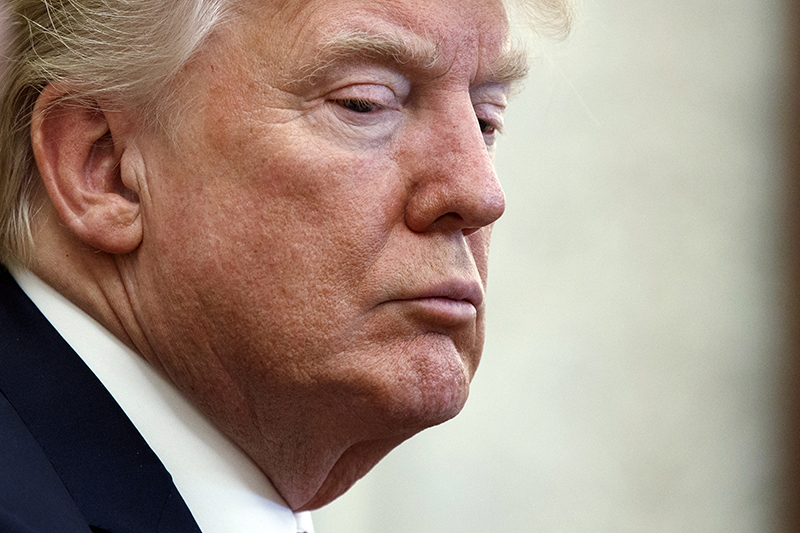Count me among those unhappy with the Trump presidency. I disapprove of the president’s foreign policy, or lack thereof. I disapprove of his domestic agenda regarding immigration, health care and taxation. I cringe at his oafishness, his late-night edicts by cellphone and his diminishment of the presidency generally. I am impatient to see him replaced by the electoral will of the American people.
So like many, I read the daily critiques of the president on these pages with interest. There is much to be concerned about. But I also believe that Trump’s election, disappointing as it was to many of us, has stimulated a dialogue on some of the important issues of our time. There are new faces vying for the responsibility of leadership. There have been creative ideas offered to remedy some of our problems. And we see a generation of Americans, some not yet even possessed of the full rights of citizenship, rallying to causes that they deem just. These new ideas, fresh faces and movements are the by-products of the Trump presidency, and they have refreshed our democracy. This is a good thing.
So it was that Kevin Carley’s recent commentary (“Don’t let those who can’t get top-security clearance run for president,” March 14) caught my eye. I initially thought it might have been written as a tongue-in-cheek spoof of Trump. It wasn’t.
The author’s thesis was clear: As a custodian of America’s most sensitive secrets, the president ought to be vetted as someone suitable for consideration by the American people for election in the first place. While the suggestion was surely made in good faith and, in Trump’s case, perhaps with good cause, the prospect is chilling.
Of the panoply of constitutional protections passed down to us by the Founders and safeguarded by the rulings of our courts and the sacrifices of our fellow citizens, above all is the right of the people to elect to public office whomever they deem fit. At the core of that principle is the belief that, be they wise or foolhardy, the American people have, and by right ought to have, the one and only voice in who leads them.
The president is the supreme constitutional officer. His or her status as such, his inherent duties and responsibilities, her qualifications for office and the mechanism for his removal, are specified by the Constitution. No act of Congress or executive order can modify those standards, short of amending the Constitution itself. Just as it is for our federal judges and members of Congress, the president has the authority to access classified information in order to carry out his or her lawful duties. And with a stroke of the pen, the president has the lawful authority to declassify information deemed secret, sensitive and therefore classified by another member of the executive branch.
Is there cause for concern that Trump, in furtherance of self-interest, under threat of extortion or because of ignorance or carelessness, will spill the beans about our national secrets? Yes, and for many of the reasons we have seen over the past 15 months.
But more concerning is the prospect of Americans, out of disdain for any one occupant of the Oval Office, abdicating their unqualified right to vet their own leaders and, instead, subjecting those standing for our highest office to preliminary evaluation by the unelected personnel of the national government, themselves acting in secret. Indeed, were candidates for president subjected to Carley’s “checklist” and personal bankruptcy, therefore, disqualified them from service, Abraham Lincoln would never have left the practice of law in Springfield, Illinois.
Background investigations are important for those who serve in government and have access to sensitive information. As a former assistant U.S. attorney, I have undergone my own share of background scrutiny. But a posting to a career appointment is a far cry from being elected to the presidency by what (we all hope) was the collective free will of the American people.
As those of us unhappy with the president suffer his foibles, we ought to not make matters worse by diluting our constitutional right to choose whomever we prefer to hold that office without preliminary vetting by the national government. In the end, it is only the Constitution, that time-tested charter and model for democrats and free societies the world over, that stands between us and the excesses of this or any future chief executive. Background checks for presidential candidates? Not such a good idea.
Send questions/comments to the editors.


